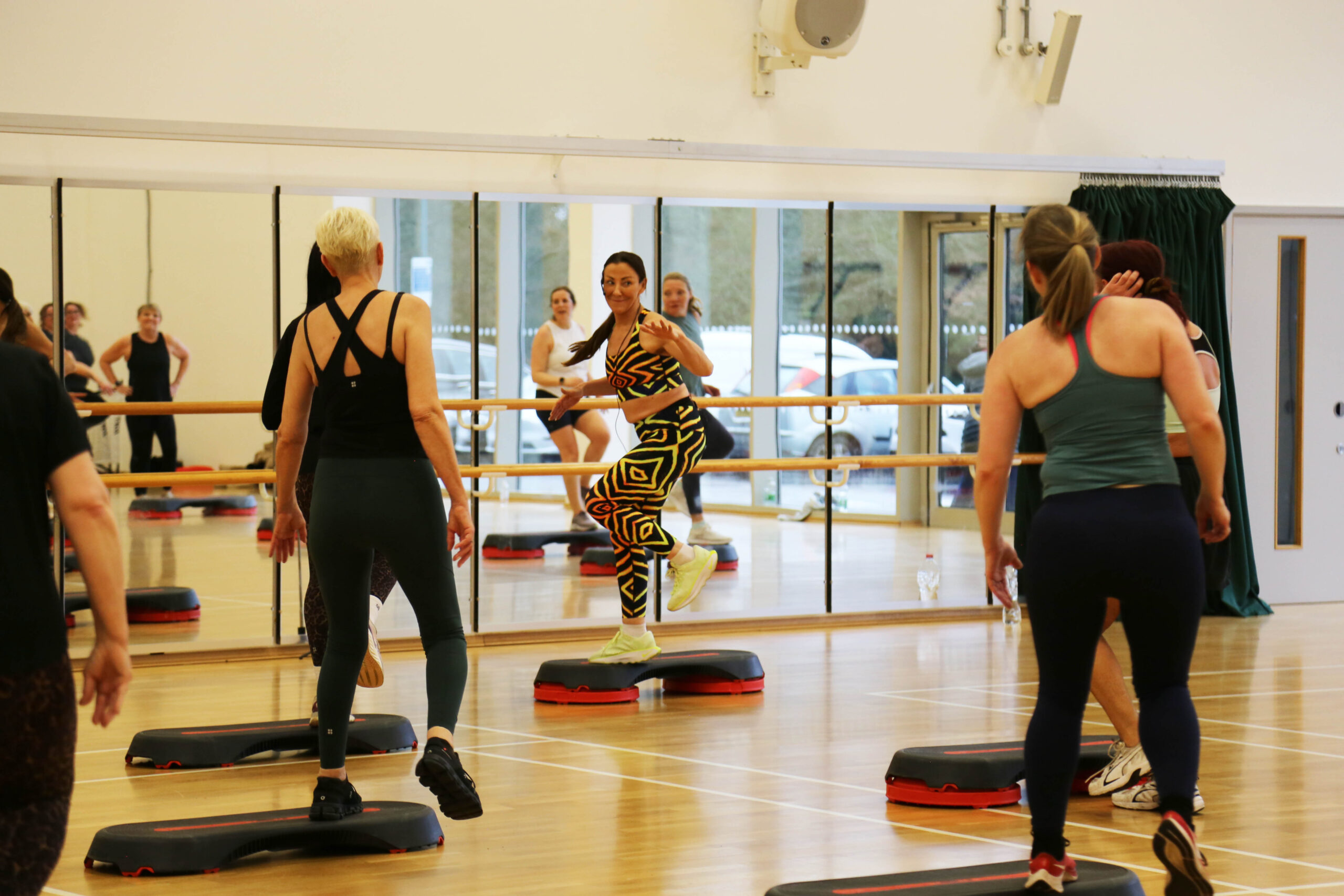Welcome to my weekly Women’s Wellness Newsletter, which I send out every Saturday. This space is for women of all ages who want to live well, feel vibrant, and stay strong.
Each week, I’ll share simple, practical tips to help you manage your wellness and introduce habits you can apply immediately to feel better, energised, and empowered.
Have you heard about Insulin Resistance?
I’ve spoken about this in our wellness talks and shared information in my newsletters, but here’s a simple breakdown of what it really is—and how it could be affecting you, especially through peri to post-menopause.
What Is Insulin Resistance?
Insulin resistance occurs when the cells in your muscles, fat, and liver don’t respond properly to insulin, a hormone produced by the pancreas that helps regulate blood sugar levels. As a result, your body needs more insulin to keep blood sugar levels in check. Over time, this can lead to elevated blood sugar levels and potentially progress to prediabetes or type 2 diabetes.
How Does Insulin Resistance Develop?
- Lifestyle factors such as poor diet, lack of exercise, and being overweight, especially around the abdominal area, can contribute.
- Chronic stress and poor sleep quality can also play a role.
- Genetics may make some individuals more predisposed.
- Hormonal imbalances, such as in polycystic ovary syndrome (PCOS) or menopause, may exacerbate the issue.
Signs of Insulin Resistance
- Fatigue after eating
- Increased hunger, particularly for sugary or high-carb foods
- Difficulty losing weight, especially around the waist
- Skin tags or darkened patches of skin (acanthosis nigricans)
- Cravings for sugar and refined carbohydrates
- High blood pressure or cholesterol levels
What Can You Do About Insulin Resistance?
1. Improve Your Diet
- Focus on whole, unprocessed foods: Include vegetables, lean protein, healthy fats, and whole grains.
- Reduce sugar and refined carbohydrates: These spike blood sugar and insulin levels.
- Incorporate more fibre: Found in vegetables, fruits, and whole grains, fibre slows down digestion and helps manage blood sugar levels.
- Try intermittent fasting: This can help regulate insulin levels by giving the body a break from constant insulin production.
2. Exercise Regularly
- Strength training: Builds muscle, which improves insulin sensitivity.
- Aerobic exercise: Activities like walking, running, or cycling can lower blood sugar levels and increase insulin sensitivity.
- Daily movement: Even light activities like walking after meals can help.
3. Manage Stress
- High cortisol levels from chronic stress can worsen insulin resistance. Practicing relaxation techniques like yoga, meditation, or deep breathing can help lower stress levels.
4. Get Quality Sleep
- Poor sleep impacts blood sugar regulation. Aim for 7–9 hours of quality sleep per night to improve insulin sensitivity.
5. Maintain a Healthy Weight
- Losing even 5–10% of your body weight can significantly improve insulin resistance.
6. Consider Supplements (With GP Advice)
- Magnesium: Helps with glucose regulation.
- Omega-3 fatty acids: Found in fish oil, these can reduce inflammation linked to insulin resistance.
- Chromium: May improve insulin sensitivity.
- Berberine: A natural compound shown to help lower blood sugar.
7. Monitor Your Blood Sugar
- Regular check-ups with your GP or a healthcare provider can help track blood sugar levels and ensure you’re on the right path.
8. Seek Professional Advice
- If insulin resistance is part of a condition like PCOS or prediabetes, work with a healthcare professional for a personalised plan.
Takeaway
Insulin resistance can often be reversed or improved through lifestyle changes. By focusing on a balanced diet, regular exercise, stress management, and quality sleep, you can significantly reduce your risk of developing type 2 diabetes and improve your overall health. If you suspect you may have insulin resistance, consult your GP for appropriate tests and tailored guidance.
How Does Insulin Resistance Affect Menopausal Women?
Menopause can exacerbate insulin resistance due to hormonal changes, particularly the decline in oestrogen and progesterone. These hormonal shifts can lead to weight gain, increased fat storage (especially around the abdomen), and changes in how the body regulates blood sugar. Insulin resistance in menopausal women may increase the risk of type 2 diabetes, heart disease, and other metabolic issues.
Key Ways Insulin Resistance Impacts Menopausal Women
1. Increased Abdominal Fat (Visceral Fat)
- Oestrogen typically helps regulate fat distribution in women. When oestrogen levels drop during menopause, fat is more likely to accumulate around the abdomen. This type of fat is metabolically active and strongly linked to insulin resistance.
2. Higher Risk of Weight Gain
- Menopause slows down metabolism and alters how the body processes energy, making it easier to gain weight. Insulin resistance further complicates this by promoting fat storage and making weight loss more challenging.
3. Difficulty Regulating Blood Sugar
- Insulin resistance during menopause can cause blood sugar levels to fluctuate, leading to fatigue, cravings for sugary foods, and increased hunger. These issues can make it harder to maintain a healthy weight and avoid overeating.
4. Increased Risk of Chronic Diseases
- Insulin resistance is linked to a higher risk of:
- Type 2 diabetes: Menopausal women with insulin resistance are more likely to develop diabetes.
- Cardiovascular disease: Insulin resistance and abdominal fat contribute to high cholesterol, high blood pressure, and atherosclerosis.
- Metabolic syndrome: A cluster of conditions (e.g., high blood pressure, elevated blood sugar, and obesity) associated with an increased risk of heart disease and diabetes.
5. Worsening of Other Menopausal Symptoms
- Insulin resistance can intensify common menopausal symptoms, such as fatigue, brain fog, and mood swings, making menopause feel more challenging.
What Can Menopausal Women Do About Insulin Resistance?
1. Focus on Nutrition
- Adopt a low-glycaemic diet: Prioritise foods that don’t spike blood sugar levels, such as leafy greens, lean protein, nuts, seeds, and healthy fats.
- Incorporate more fibre: Fibre slows sugar absorption and improves insulin sensitivity. Include whole grains, vegetables, and legumes.
- Limit refined carbs and sugars: These can worsen blood sugar fluctuations.
- Include healthy fats: Foods like avocados, olive oil, and fatty fish can reduce inflammation and improve metabolic health.
- Monitor portion sizes: Menopausal metabolism is slower, so eating smaller, nutrient-dense meals can help.
2. Stay Active
- Strength training: Builds muscle, which helps the body use insulin more effectively.
- Cardio exercise: Walking, jogging, or cycling improves overall insulin sensitivity.
- Daily movement: Even light activities like stretching or walking after meals can make a difference.
3. Manage Weight
- Losing even a small percentage of body weight (5-10%) can significantly improve insulin sensitivity and reduce abdominal fat.
4. Prioritise Sleep
- Poor sleep during menopause can worsen insulin resistance. Practice good sleep hygiene, such as maintaining a consistent bedtime, avoiding screens before bed, and managing hot flashes with cooling strategies.
5. Manage Stress
- Chronic stress raises cortisol, which contributes to insulin resistance. Stress-reducing techniques like yoga, meditation, and deep breathing can be highly effective.
6. Seek Medical Support
- Discuss your symptoms with your GP. They may recommend blood tests to check for insulin resistance, prediabetes, or diabetes.
- Consider hormone replacement therapy (HRT) if appropriate, as it can help mitigate the effects of oestrogen decline on insulin sensitivity.
• • Work with a nutritionist or health professional for personalised guidance.
It’s an interesting topic and I welcome your thoughts hit reply and let me know or join me in my women’s wellness facebook group.https://www.facebook.com/groups/845793672151353
This Week in Studio Live
We’ve got a full schedule of class and live workouts online. Join me live or catch the replay — [Click here to join]. Id love you to take a class with me, Class members join me from all over the world and you can do the class live or on catch up.
Have a lovely weekend.
Lots of love,
Rachel x
Rachel x
Useful Links
For my youtube Workouts click here
Fancy a FREE 15 Minute Walkfit Workout click here
Join me ONLINE for a class https://studiolive.club/membership/



